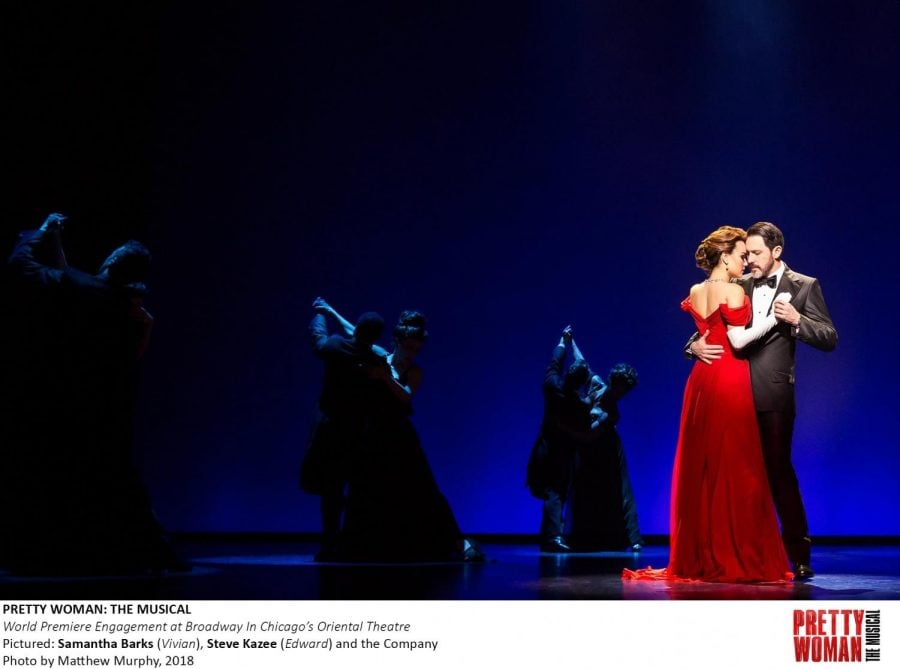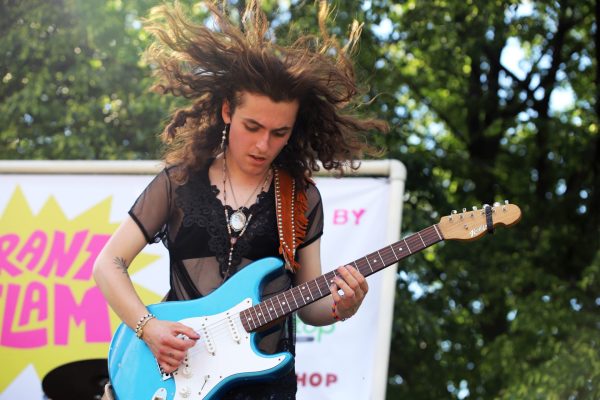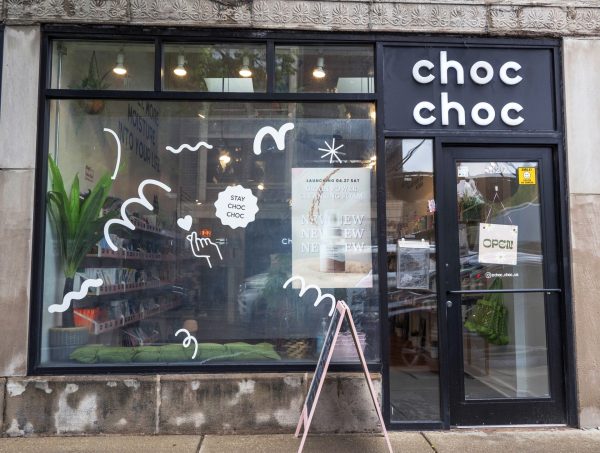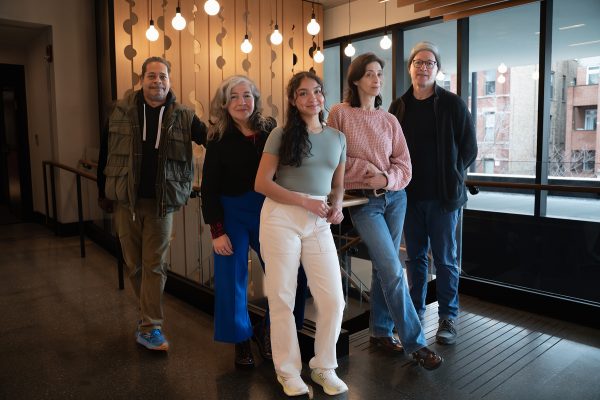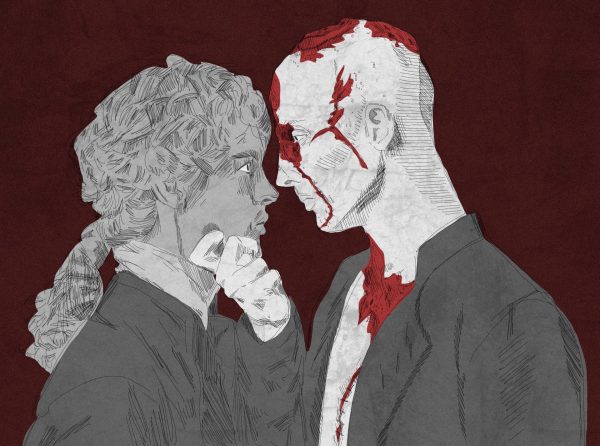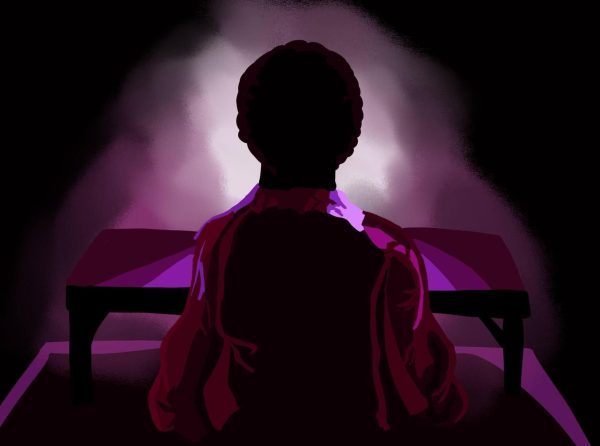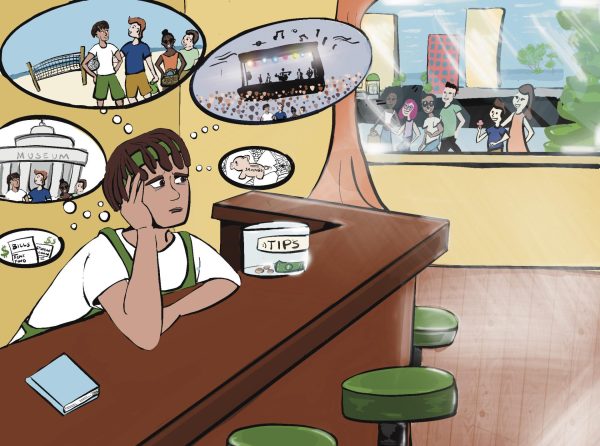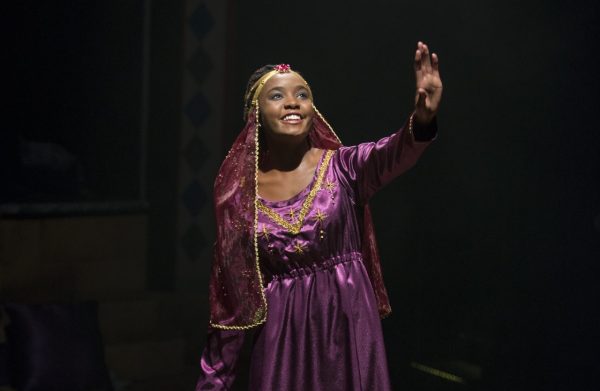“Pretty Woman” entertains, but fails in the era of #MeToo
Samantha Banks (Vivian) and Steven Kazee (Edward) on stage in “Pretty Woman: The Musical,” the world premiere Broadway adaption of the beloved film “Pretty Woman.” (Photo courtesy of Matthew Murphy)
The adolescent fantasy of a tanned and blonde prince saving a down-on-her-luck maiden from a tall tower has muddled the minds of young girls for years – often due to the prevalence of Disney films such as “Cinderella” and “Rapunzel” in pop culture. These animated girls – and I do mean “girls,” since the origins of these Disney films often showcase children in adult situations – live their desolate days in a tower, dreaming of the moment when their man will rescue them from their sorrows. Though these stories sometimes succeed, as they harken to issues surrounding domestic abuse and economic disparities (though they habitually involve white women), most of these animated girls ultimately lose the game of freedom. They lose control of their destinies once they are “saved,” because they now must change their modest outlook on life to match that of a rich prince.
“Pretty Woman: The Musical” reaffirms this narrative by way of Hollywood Boulevard prostitute Vivian Ward, excellently played by Samantha Banks of “Les Miserables” fame. She must change herself in order to fall in love with too-serious-for-words businessman Edward Lewis, played nonchalantly by Steve Kazee of “Once.”
The classic 1990 film the musical is based on sprouted the career of the then up-and-coming Julia Roberts, with her electrifying and captivating performance as the witty, yet, flawed Vivian. These character traits are somewhat further explored in the musical with numbers like “Anywhere But Here” and “Look At Me Now.” Vivian wants more from her life than the tired and dangerous game of turning tricks on Hollywood Boulevard, but it’s unclear that she is totally committed to change until the number “I Can’t Go Back” in the last 20 minutes of the production. She’s experienced the high life: the penthouse, expensive dining and the opera. Her immediate but questioned induction into the bourgeoisie comes at the expense of her freedom from the suppressive and imperious men she wishes to rid herself of by escaping the street corner. The irony sets in with Edward’s number “Freedom,” when Vivian’s tragic state as the “manic-pixie-dream-girl” has created an abrupt shake-up in his white-collar life, and he’s the one who truly “can’t go back.” Edward has the privilege of not changing a thing about his comfortable life at the top of the metaphorical penthouse, which is something that Vivian cannot understand.
The film and the musical both fail in their disappointing ending when the two rekindle. Before, Vivian decided she wanted to live her life outside of Edward’s suppression and refused to be his sugar baby. The experience did change her though, as she attempts to escape from the street corner in Hollywood to San Francisco so that she can get a job and finish high school. This plan is shoved under the mat when Edward, who will not accept any answer outside of an affirmative one, recreates her fairy-tale fantasy and, literally, sweeps her off her feet. There’s no mention of her recent existential rumination, or if she still wants to better herself outside of a relationship after she realizes her worth. She doesn’t necessarily accept his offer to be her sugar baby, but the difference in power leads the audience to speculate that she would.
The musical fails here, especially in the age of #TimesUp and #MeToo. The hint of feminist progress from the original story in Vivian’s powerful and independent numbers is completely forgotten because of her compliance. She knows she can do better than the street corner, but does she feel empowered enough to ensure Edward doesn’t keep her in the high tower like a princess who wants to escape?
One change the musical does right is in the attempted sexual assault scene with Vivian and Edward’s lawyer Phillip. He meets her in the penthouse her and Edward have shared during their week together after Edward hurt their business deal. Phillip drinks and intimidates Vivian, putting her down and minimizing her relationship with Edward. He then attacks her, but Vivian successfully escapes and punches him. Only after the punch does Edward show up and kick him out, without a physical altercation between the two men. The scene in the film leads the audience to believe Phillip would have assaulted Vivian if Edward hadn’t saved her. The musical version of Vivian doesn’t t need Edward to save her from an abusive man because it is implied that she has probably dealt with many other men as aggressive as him. This scene gives her more depth and character outside of the “hooker with a heart of gold” archetype, and it tries to incorporate the recent influx of sexual harassment discussions in Hollywood in an effective way.
Samantha Banks’ Vivian isn’t a feminist icon, just as Julia Roberts’ isn’t either. For a production to selectively and effectively represent the #TimesUp and #MeToo movements is asking a lot, especially a production flaunting the power distance of a boring, disgustingly wealthy businessman and a vulnerable, ill-fated prostitute. “Pretty Woman: The Musical” tempts the conversation but doesn’t embody it. It remains on middle-ground: releasing the princess from her high tower for a fleeting moment, only to place her right back in with the taste of freedom still fresh on her lips.


